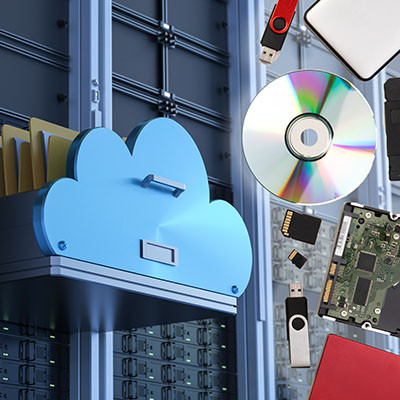
Preferred Blog
Preferred has been serving the Tinley Park area since 1991, providing IT Support such as technical helpdesk support, computer support, and consulting to small and medium-sized businesses.
0 Comments
Most businesses who utilize the cloud report that they have managed to cut costs while still getting the resources they need to perform to spec. Businesses can use the cloud for processing and storing data, as well as application deployment, making it a very dynamic solution to a business’ needs. However, you cannot make decisions based on cost alone. Here are some other factors to consider.
Cloud computing is a major growth industry as businesses and individuals look to use the computing strategy to either save money or get resources that they would typically not be able to commit to. With cloud computing becoming more and more integrated into business each year, it stands to reason that the once Wild West of cloud computing would start to see a lot more regulation. This week, we’ll take a look at how the cloud is regulated and what to expect out of cloud regulation down the road.
Keeping a business running is no easy feat, with dozens of moving parts and considerations to maintain at any given time. Arguably, this has never been more true than it is now, when you combine current inflation and labor shortages with the technological options businesses now have. In short, it can be exceptionally confusing…and challenging in terms of budgeting it out.
Software makes or breaks businesses, so your software strategy should be implemented with sound logic in mind. One of the ways you can make the most out of your limited resources and budget is to consider cloud-hosted Software as a Service offerings. With SaaS, you can implement better software that is more accessible, flexible, and manageable than the traditional method of hosting.
Do your employees have a hard time with the technology that you’ve provided them? Are your digitization efforts lagging behind? Are the systems your business is using coming up on their end of support date? Old technology can cause major problems for a business. In this week’s blog, we go through some of the signs that you may need to upgrade your business’ technology.
Rarely is there a problem that a cloud solution cannot fix, and as such, businesses are more often turning to the cloud to find ways to handle the many challenges presented to them on a daily basis. Is this reliance on the cloud a good thing, or does it hold businesses back? Let’s take a look at what can happen as a result of overreliance on the cloud.
Since it first entered the mainstream in the mid-2000s, cloud computing has become a cornerstone of businesses of every size and shape. The big question that remains, however, is what your business could lean on the cloud to do. Let’s go over the multitude of options that the cloud opens up for a business.
Your business depends on software for many of its day-to-day operations, whether it’s an email system, productivity suite, or other specialized software. When it comes to acquiring software, you have two options: the traditional method of acquisition, i.e. buying it from a vendor, or subscribing to a Software as a Service solution. What are the differences and how can you make sure your organization is getting value out of its investment?
Cloud computing has been touted as one of the most innovative and important technologies for smaller businesses as they look to compete with larger organizations. How it makes this possible is by offering the dynamic computing environments that can help bring these smaller businesses into the information age without saddling them with massive infrastructure costs while doing so. That’s not to say that the cloud is cheap by any means, and this month we will discuss how cloud computing is a great option and how if it isn’t managed properly, it can be problematic for the businesses that rely on it.
When you think of the government, you don’t immediately think of an organization that is at the forefront of innovation. Sure, they have all that money at their disposal, but most of it goes here and there to try to help the people of a constituency; and, frankly it isn’t terribly efficient. What may surprise you is that governments are embracing cloud services and it tends to benefit everyone. Let’s see how governments are taking advantage of cloud computing.
Most everyone uses the cloud in some capacity, even if it’s not a professional one. Simply put, the value it provides even on a consumer level is astounding, and this is even more so with business applications. The cloud makes it much easier for organizations to manage their resources compared to hosting them in-house, but a problem has surfaced with some companies suffering due to what’s called “cloud sprawl.”
Cloud computing is being used by nearly everyone nowadays, and most of the time it presents a lot of value that can’t be found with purchasing, managing, and maintaining an in-house computing infrastructure. As an organization begins moving more and more of their computing to the cloud, there is a situation that arises that industry professionals call “cloud sprawl”.
Smart devices have brought about unprecedented amounts of connectivity in aspects of running a business or owning a home that never could have been dreamed of in the past. People can now unlock their front doors, turn up their thermostats, and even switch the lights on and off through their smartphone. Unfortunately, the part that people don’t like to talk about with these applications and devices is security—big surprise, right?
Data backup is something that some organizations think they can do without, simply because they believe that it’s only valuable to have in the event that something wrong happens. Well, we’re here to break the bad news that if something can go wrong, it most likely will go wrong… at least at some point. With automated cloud backups, however, the chances of some unexpected emergency ending your business are drastically reduced.
Remote work carries with it a different set of risks than does a traditional workplace setup. Being forced to move in that direction only exacerbates the issue of figuring out how to operate under what people are calling the “new normal”. This month we thought we would go through a couple of the risks that come with having your staff working remotely, and what to do about them.
The cloud is a great tool to improve the accessibility of applications and data, but with so many options available to businesses, it can be a bit intimidating to get started with it. Let’s go over some of the various types of cloud solutions available, as well as some of the more well-known services that you might find helpful.
Sign Up for Our Newsletter
Latest Blog Entry
An expiration date helps to make sure you aren’t buying fast-turning foods at the grocery store, and now, the technology industry is making strides to establish a similar standard. A new industry report recommends new legislation pushing for End-of-Life (EoL) disclosure, whi...
Latest News
Best Places to Work - 5 YEARS STRONG!!
Preferred is once again, honored for being a Best Place to Work for the fifth straight year! Our team is what makes Preferred a Best Place to Work.
Daily Herald Suburban Business 2024 Best Places to Work Honorees The Daily Herald Suburban Business has announced the names of 51 companies, in 5 categories of competition, that are honored as the 2024 Best Places to Work in Illinois. This statewide survey and awards program was designed to identify, recognize and honor the best places of employment in Illinois, benefiting the state's economy, its workforce and businesses.






















